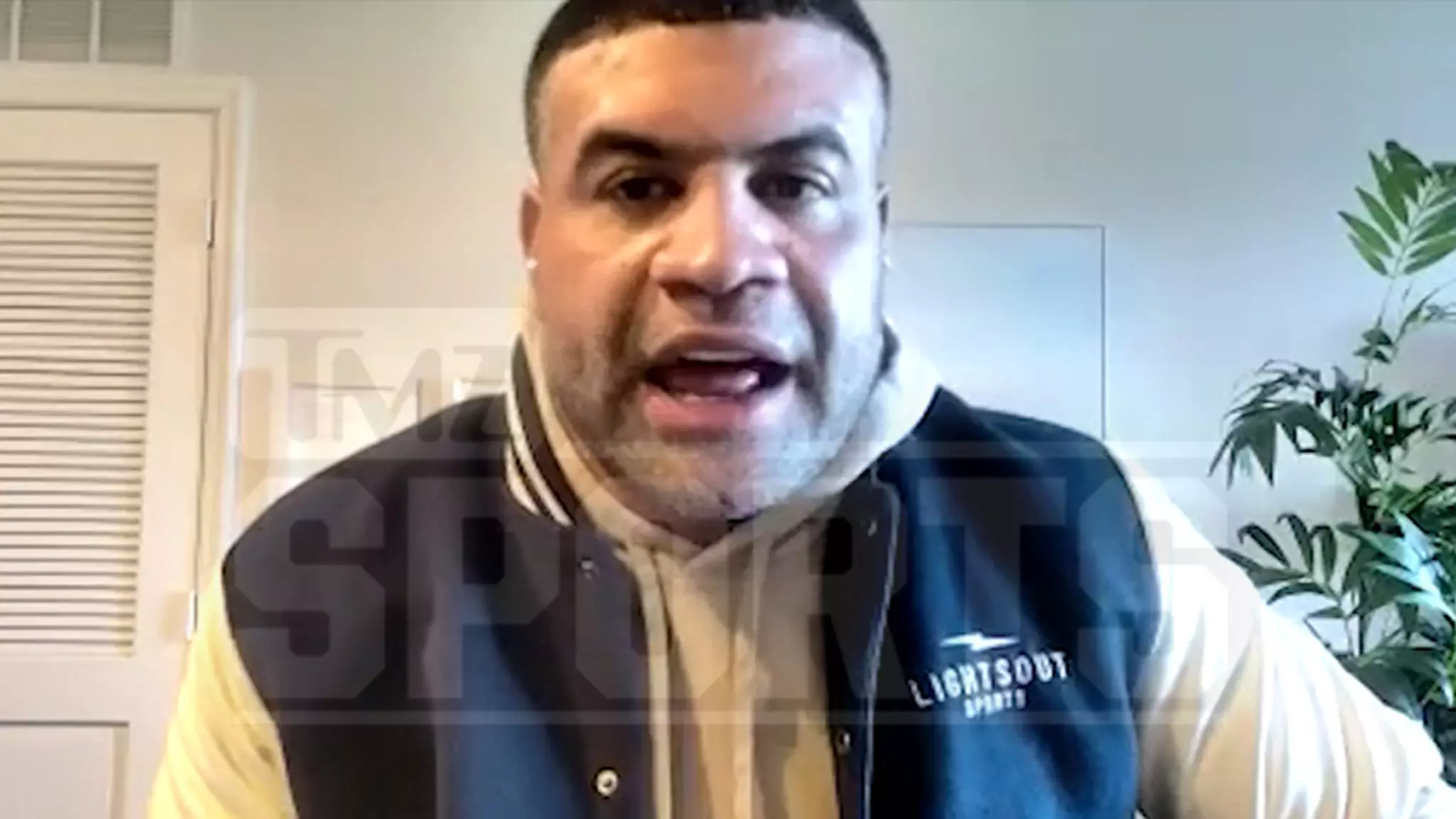In the world of professional sports, reputation is everything. Athletes invest years into building their professional image, and a single misstep can severely tarnish it. This truth was starkly illustrated in a recent incident involving De’Vondre Campbell, a linebacker for the San Francisco 49ers. Following a critical moment during a Monday night game against the Los Angeles Rams, Campbell’s actions drew scrutiny not just from fans, but from his fellow teammates and sports analysts alike. Retired NFL All-Pro Shawne Merriman offered his perspective, claiming that Campbell’s reputation might now be irreparably damaged.
The incident in question occurred in the third quarter, when Campbell chose not to return to the game after a teammate was injured. This refusal to re-enter was perceived as a lack of commitment, casting doubt on his reliability as a player. Such decisions don’t just reflect on the immediate situation but have long-lasting implications for a player’s career—impacting future contracts, relationships with other teams, and even how fans view the player’s legacy.
The aftermath of Campbell’s decision was swift and brutal. Team members, including Charvarius Ward and George Kittle, voiced their disappointment and frustration publicly. In the eyes of his teammates and coaches, Campbell’s choice to step down during a crucial moment was seen as a betrayal of trust. Football is inherently a team sport; reliance on one another is fundamental to success. When a player appears to abandon their duties, it sends shockwaves through the entire locker room—and can lead to questioning of a player’s character.
Analyzing this situation, one cannot overlook the psychological implications of such a public reprimand. Athletes are expected to thrive under pressure, and any sign of weakness or hesitation is often magnified. Merriman’s forecast—projecting that Campbell would struggle to secure a position with another team—paints a bleak picture. This sentiment highlights a significant gap between an athlete’s potential and their public persona, a divide that can have dire consequences.
Despite the gravity of the situation, there remains a flicker of hope for Campbell: redemption through a heartfelt apology. Merriman stresses that failure to address the situation could cement his fate as “unreliable” in the eyes of the league. A sincere effort to engage with the public and acknowledge the mistakes made could open doors—or at least keep them slightly ajar. Professional athletes must navigate public scrutiny, but owning up to missteps can sometimes win back lost trust.
The sports industry is filled with second chances, provided that the individual is willing to engage with their own misjudgments transparently. However, such chances are fleeting and must be seized with urgency. In Campbell’s case, issuing an apology might not solely be an attempt to mitigate reputational damage, but rather a necessary step toward reshaping his narrative as a player and person.
In a profession defined by teamwork, courage, and resilience, Campbell’s story serves as a cautionary tale. The whispers of the media, the pointed criticisms from teammates, and the looming prospect of unemployment signal that one moment can undo a lifetime of toil. Shawne Merriman’s critical analysis underscores a hard truth: no matter the accolades or statistics amassed over a career, a player’s commitment remains paramount.
The lesson here extends beyond Campbell; it serves as a reflective moment for all athletes. The pressure on professional players is immense; it’s imperative they understand the weight of their decisions. What happens in the heat of the game not only defines the current moment, but can also reverberate long after the final whistle blows.
Ultimately, Campbell’s future remains uncertain. Without a deliberate effort to address the fallout from his actions, he risks being remembered predominantly for this incident. In the unforgiving arena of sports, building a reputation demands a lifetime of hard work, while destroying it often takes just a few fleeting seconds. The pursuit of excellence demands not only talent but also an unwavering commitment to the team—a lesson Campbell must now grapple with.

